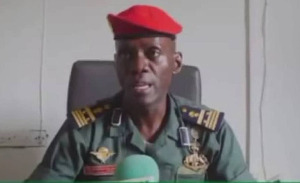Indigenous Bagyelis communities living around Campo Ma’an National Park in the South Region of Cameroon have been granted regulated access to hunt wildlife species for ritual purposes.
A memorandum of understanding, MoU, signed between the Bagyelis and the conservation service of the Park recently, makes it possible for Bagyelis to hunt class B and C wildlife (partially protected species) inside the Park, for ritual purposes only, and on condition of prior authorisation.
“We will, henceforth, have access to sustainably harvest of natural resources and benefit from training that will enable us to participate in management activities of the Park,” said Jeanne Biloa, who heads a local Bagyeli association. Class B and C species in Cameroon include buffalo, duiker, sitatunga, bush pig and porcupine.
Under the MoU, Bagyelis committed to participate in protecting the Park by denouncing any poaching suspect. They also pledged to stop working together with any partners found to be involved in hunting and harvesting inside Campo Ma’an National Park.
A minority and marginalised group, numbering only about 600 people, the Bagyelis are essentially hunters and gatherers who depend wholly on natural resources for their livelihood.
“We feel extremely relieved with the signing of this MoU because, due to big infrastructural projects like the Kribi Deep Sea Port, or the Memve’ele Dam, as well as logging and agro-industrial activities around the Park, we have witnessed a reduction in our roaming space and access to resources,” Biloa said.
WWF, which has been working in the area since 2003, has provided data on the Bagyelis’ resource use zone and helped integrate access rights into the management plan of the Park.
“Guaranteeing access rights of indigenous people to resources in protected areas is part of WWF principles,” said Manasseh Eno-Nku, WWF’s Project Manager for Campo Ma’an.
“This MoU is based on an agreement earlier reached between the Bagyelis, Conservation Organisations and the Government of Cameroon through the Ministry of Forestry and Wildlife,” he added. According to the conservator of Campo Ma’an, Benjamin Sock, the MoU is part of the prescription of the management plan of the Park.
“The Park is a protected area, however, we deemed it necessary to give regulated access to the Bagyelis for their livelihood and performance of their rituals,” he said. The MoU first signed in 2011, is being renewed for a period of three years (2015 to 2018).
Actualités Régionales of Sunday, 16 August 2015
Source: The Post Newspaper













